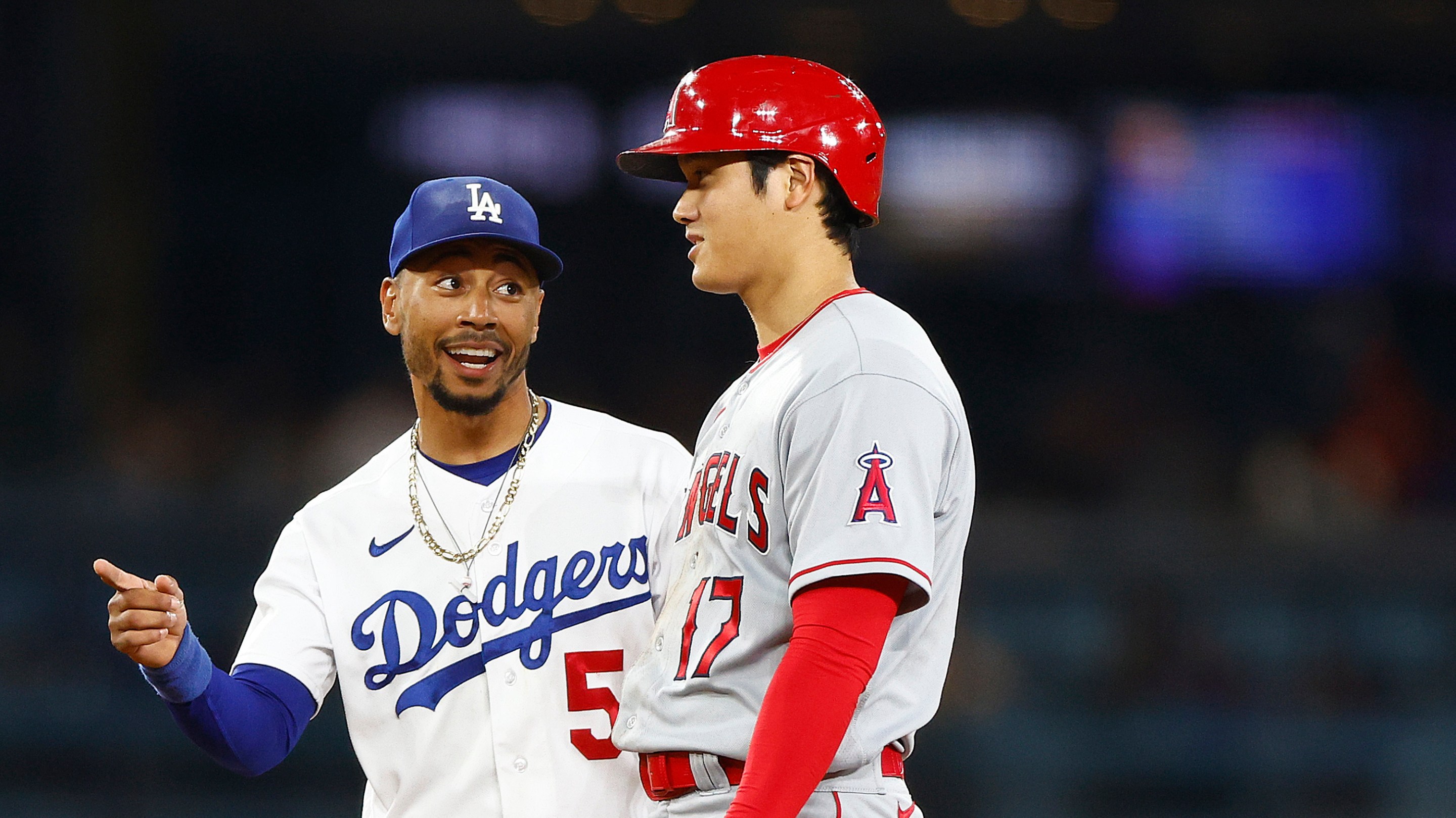In a wondrous display of extreme rule-stretching, Shohei Ohtani, who signed a 10-year, $700 million contract this Saturday, is actually less a $700 million man and more of a $20 million man until 2033, at which point he will start on his way to becoming a $680 million man, regardless of who he's playing for or whether he's playing baseball at all.
Jeff Passan hinted as much when Ohtani signed, naming "significant deferrals that include most of his salary." Well, 97 percent definitely qualifies for "most of his salary" and is also certainly "significant," even for the Dodgers, who, between Mookie Betts and Freddie Freeman, have already made structuring contracts around deferrals something of a team-building strategy. While the annual value of Ohtani's contract reads like $70 million, the deferral structure means that the competitive balance tax views Ohtani's salary as about $46 million, and the actual cash the Dodgers have to pay out is just $2 million for the next 10 years, giving the front office the flexibility to add even more players around him, such as, say, Yoshinobu Yamamoto.
The Ohtani deal sparked the kind of emotional reaction that the Tampa Bay Lightning had when they may or may not have manipulated the hard NHL salary cap by keeping Nikita Kucherov out with injury until the playoffs. No doubt fans would defend the hell out of their own team if they managed to sneak in a player of that caliber at that cost, but if another team were to do it—well, that demands righteous anger. But even if the Ohtani contract qualifies as a luxury tax loophole, it's perfectly by the books when it comes to deferring payment. The article in the CBA on deferred compensation explicitly lays out that there are no limitations on how much of a contract can be deferred. That a team and player would choose 97 percent might be extreme, but the possibility was always well within the rules.
Or, maybe, outraged fans could draw an intrasport comparison to how MLB reportedly would have vetoed a rumored 14-year Aaron Judge contract that was never officially offered (both an "if a tree falls in a forest" and a "For veto. Aaron Judge contract. Never offered." type situation) on the basis of luxury tax circumvention. Even then, there is a literal difference between extending term and deferring payments, no matter any moral equivalencies. Extending term ensures that Aaron Judge would still be under contract for all 14 years, and the Padres would, barring trades or buyouts, still be receiving his services. The difference might seem semantic, but ultimately it's the Dodgers making an extended commitment to paying $68 million to a player each year for a decade after the original contract has ended while he's free to work how he pleases.
The deferrals ultimately mean that the present-day value (accounting for estimated inflation) of Ohtani's contract is not $700 million, but is instead a (still record-breaking) $460 million, which is how the CBT number got set. While this is significantly less than $700 million, it's worth remembering that inflation still exists for long-term contracts without deferrals. Even if Ohtani had signed a 10-year, $550 or $600 million contract, the present value of that contract would not be far off from the $460 million of the current deferral set-up. In other words, he'd ultimately make a similar amount. But without the relief offered by deferred payments, the Dodgers would have a higher yearly luxury tax payment—the current $46 million is less than the would-be $55 to $60 million—and, cash flow-wise, would also be paying that $55 to $60 million to Ohtani while he was under contract.
This, unsurprisingly, also works out for Ohtani. He gets a better shot at winning, because the Dodgers have more luxury tax flexibility and more cash flow flexibility. On top of that, he reportedly makes over $40 million a year in endorsements; that is to say, even if he were intending on funding an exorbitant lifestyle that required more than $2 million a year, he could make up the difference with ads. And at the time when his cultural cachet might begin to wane, he will still be receiving $68 million from the Dodgers for another decade, with the added perk of possibly not having to pay California state tax if he moves. The deferrals will also have given baseball fans a decade to rearrange their moral landscape to accommodate tax evasion, albeit on a slightly lesser plane than, say, Formula 1 fans.
This is a loophole that previously existed and that the Dodgers have previously used. While Freeman's contract only gives the Dodgers an extra million-or-so in luxury tax room, Betts's contract carries an AAV of roughly $30 million and a luxury tax salary of $25 million. Ohtani's contract, as high-profile and heavily backloaded as it is, is the most extreme result. No doubt this will spur a great deal of resentment toward the Dodgers, but I'm not going to lie: I respect it. It's fucked up. It kind of rocks. A colleague once described the act of hating the Dodgers as being comparable to hating a really well-dressed dog. Really, the Dodgers are like if that well-dressed dog was also very smart and good at doing tricks, but also flubbed it just enough at the finish line that it only won one Dog World Series as opposed to three.
All of this—the possibility of a more competitive team—forgets the most pivotal and obvious reason why Ohtani was willing to take such a deal, which is the same reason why I will be calling Ohtani "Mr. 700 Million" (real nickname) and not "Mr. 460 Million In Present Value." $700 million just sounds so much cooler.






